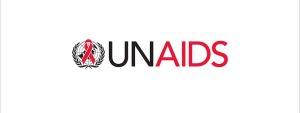WHO: 1.4 Billion With Hypertension, Only 1 in 5 Controlled
The WHO says 1.4 billion people globally live with hypertension in 2024, but fewer than 25% have it under control. Nigeria is among those with treatment rates as low as 10%, raising alarm among health experts.

The World Health Organisation has cautioned that more than 1.4 billion people were living with hypertension in 2024, yet only just over one in five of them have their condition under control, the agency revealed in its latest Global Hypertension Report.
Released during the United Nations General Assembly, the report highlights stark disparities in access to treatment and medicines. Only 28% of low-income countries report that all WHO-recommended medicines for hypertension are regularly available in primary care or local pharmacies.
Hypertension remains a major risk factor for heart attack, stroke, chronic kidney disease, and dementia. From 2011 to 2025, cardiovascular diseases—including those triggered by poor blood pressure control—are projected to cost low- and middle-income nations roughly US$3.7 trillion, or about 2% of combined GDP.
WHO Director-General Dr Tedros Adhanom Ghebreyesus emphasised the urgency: “Every hour, over 1,000 lives are lost to strokes and heart attacks from high blood pressure, and most of these deaths are preventable.”
Low- and middle-income countries bear the brunt of the burden. National control rates in 99 out of 195 countries remain under 20%. Key obstacles include the high cost of medication, inconsistent supply chains, limited public awareness, weak regulatory systems, and a shortage of adequately trained primary care providers.
In Nigeria, local studies align with the global findings: only about 10% of Nigerians with hypertension are receiving treatment, and an even smaller percentage manage to keep their blood pressure within controlled levels. Experts warn that without improvements in drug access, policy enforcement, and public health education, both morbidity and mortality from hypertension will rise.



